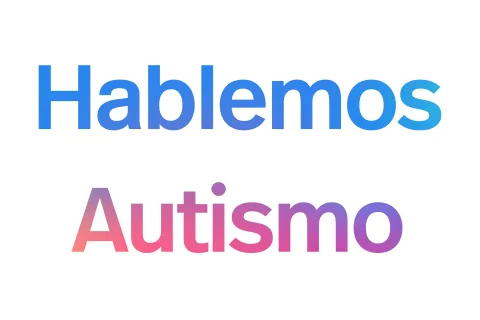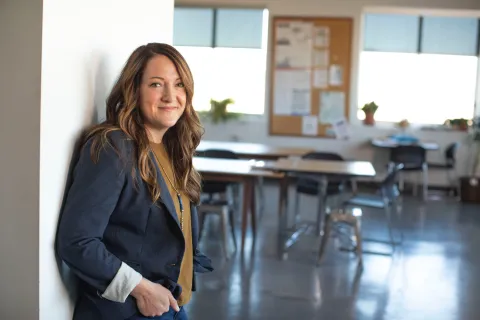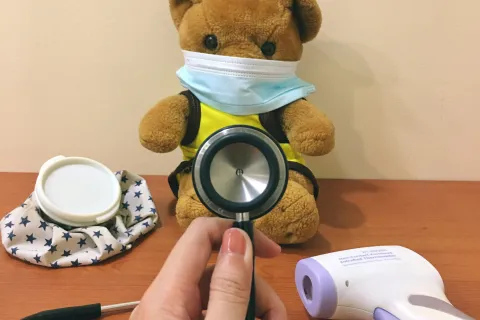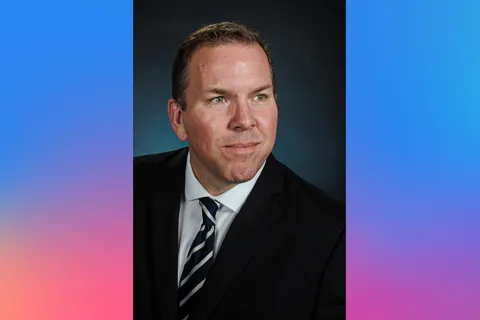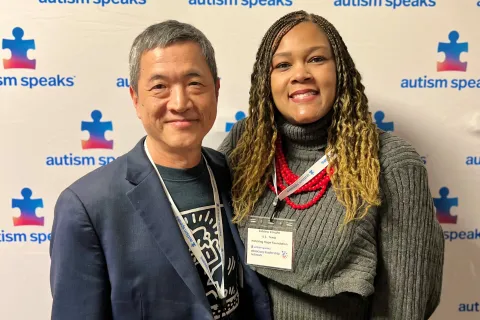Purpose-driven, functional mentorships support low-pressure learning
By Anne Nagel, Ph.D.Anne Nagel is a cognitive engineer and human factors specialist at Autism Speaks. She is also an executive function coach with a focus on autistic girls and women.
At a community gathering, a 3-year-old, autistic child walked up to one of the most powerful men in my town. The two had no relationship except going to the same church. No one recalled seeing the two interact before that day. This man, an engineer by training, managed hundreds of employees and regularly negotiated union contracts. Most of the people at the gathering were intimidated by him. The autistic boy was non-verbal. He lifted a small toy to the man and made some gestures. The man sat down and patiently showed the boy how to take the toy apart and put it together again. For the rest of the afternoon, the boy happily kept taking the toy apart and putting it together.
What made the child instinctually beeline to the engineer? That small boy had searched out someone to teach him something he desperately wanted to know, and he found a mentor who could teach him how to do a specific task. Like that boy, my brain develops a laser-like focus when searching for desired information. As an autistic adult, I excel at the type of mentorship — informal and functional — that the autistic boy and businessman formed.
The purpose of mentorship is to teach information, knowledge or a skill. In a functional mentorship, the knowledge is extremely focused, such as how to play a specific video game or cook a particular dish. Informal mentorships are not arranged by an organization or group, and mentors and mentees are not assigned. Mentees, their parents, teachers or friends seek out someone with expertise and request to learn something. My autistic ability to notice details helps me identify people with actual expertise and not people looking to add mentorship to their resume.
Mentorships don’t have to be long-term relationships that span years. They can include flash mentorships that are single interactions and have less pressure than traditional mentorships. I enjoy the laid-back style and concrete purpose of flash mentorships. I’m not worried about social anxiety because I’m focused on the subject matter. If I’m not comfortable with the person, I’m not stuck in a formal relationship. Often, one interaction can open the door to more interactions.
A mentor doesn’t have to be older. My younger mentors regularly teach me how to use new technology. When they get older and need my knowledge, I can teach them about statistics or some bizarre fact that my autistic mind is holding. As a species, humans are good at teaching each other skills and passing down knowledge. Most things are not learned at school or in a formal setting.
Once I recognize someone may be a good mentor for the information I’m looking for, I follow the SMART objective model, a common goal-setting framework. This model helps define a clear objective, which limits the chances that I’ll be confused or lose focus.
As an example, say I’m new to a job and a meeting is planned. I ask a co-worker to quickly explain the unwritten rules of my boss’s meetings. Informally, I’ve asked that co-worker to be a mentor. Then I break down the knowledge I’m asking for using the SMART framework:
Specific – What specific knowledge am I seeking? In the example, I’m asking for specific knowledge regarding the meeting behavior. Where does my boss sit? Do people always sit in the same seats? Do other people talk or just the boss? I’m not asking to learn everything from my co-worker — just what to expect in a meeting.
Measurable – Can I measure what I’ve learned? After talking with a co-worker, I can measure my knowledge by knowing how to behave.
Attainable – Can I use the knowledge and apply it? If my co-worker hasn’t been to a meeting with my boss and has little understanding of the group dynamics, I can’t achieve my goal of understanding the meeting behavior. It might be time to find a better mentor for this particular situation.
Relevant – Is learning this knowledge important to me? If I break the behavior norms of the meeting, it can affect what my boss thinks about me.
Time-bound – Can I learn this information in a timely manner? Learning that the boss likes to sit at the front of the table is not useful after I have already sat in his seat and disrupted the meeting dynamics.
People are often willing to share their information when they know the time commitment and the scope of what I want to learn. If I want to learn to knit a sweater, I would start by asking how to do an easy stitch. After I master that skill, I can ask about another stitch. I can build a relationship through building more skills.
I have asked hundreds of people to teach me things over the years. I spent a summer learning organic gardening from a local farmer. After I admitted that I knew little about Great Britain, an English woman from my yoga class spent an hour over tea explaining the geography of England, Wales and Scotland. This has helped me understand Brexit. A very nice stranger taught me how order at Starbucks in five minutes. People have asked me to teach them things, too. It balances out.
These small, quick social relationships fit better with my brain than formal mentorships. I will never feel comfortable in a formal mentorship program that assigns me someone I don’t know and has a vague objective. Being autistic, I have embraced the purpose-driven, functional mentorship as a comfortable and useful way to develop new knowledge and skills, whether I am the one learning or the one teaching. Some of these have grown into deep, long-lasting friendships. It might not look like the typical mentorship, but nothing I do is typical. That is one of the many things I enjoy about autism.

